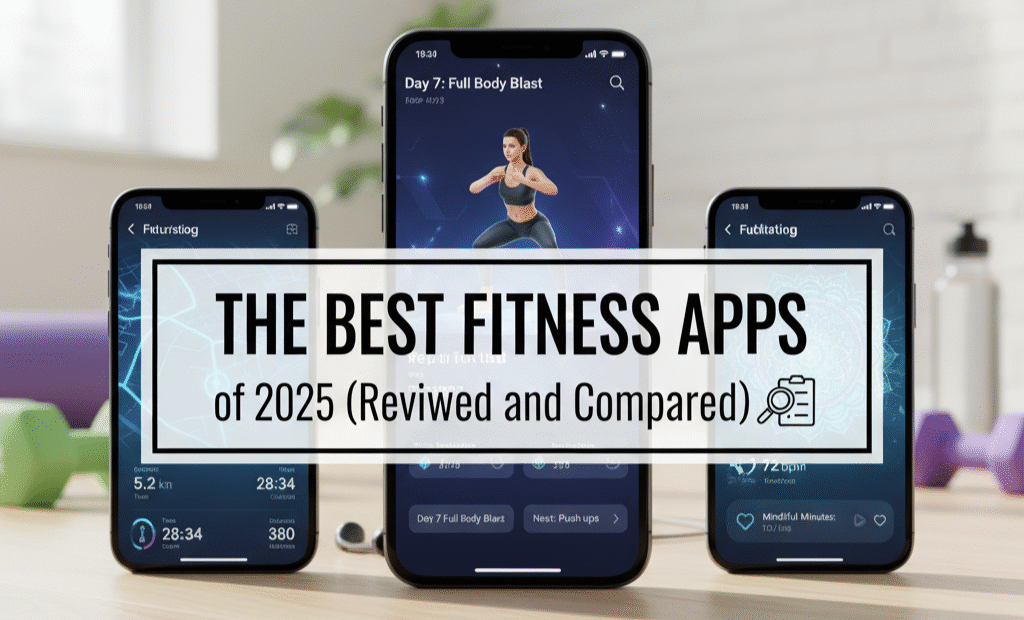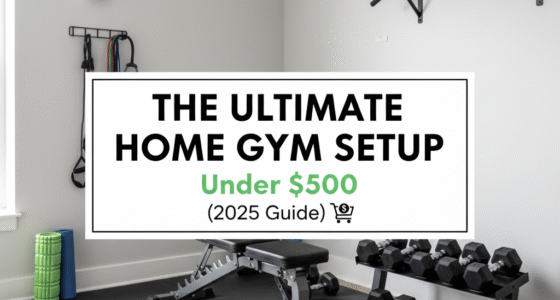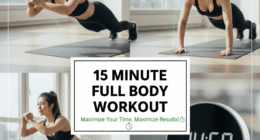In 2025, staying fit is no longer about just hitting the gym or following traditional workout plans. Technology has completely transformed the fitness industry, and fitness apps are now one of the most powerful tools for anyone looking to lose weight, build muscle, eat healthier, or simply stay consistent. From AI-powered personal trainers to advanced calorie trackers, the best fitness apps of 2025 are designed to meet the needs of every fitness enthusiast—whether beginner or advanced.
In this detailed guide, we’ll review, compare, and analyze the top fitness apps of 2025. We’ll explore their features, benefits, drawbacks, and why they stand out. This list is designed to help you choose the right app that fits your lifestyle and health goals.
Why Use Fitness Apps in 2025?
The question isn’t why to use a fitness app—it’s which one should you use. Fitness apps today have evolved far beyond basic step counting. They now combine artificial intelligence, personalized coaching, real-time analytics, and habit tracking to provide a complete health solution.
Here are the main reasons why fitness apps have become essential in 2025:
- Personalized Coaching: Most apps now use AI to create workout and diet plans tailored to your goals, body type, and preferences.
- Nutrition Tracking: Advanced databases make calorie counting and meal planning easier than ever.
- Motivation & Accountability: Push notifications, progress charts, and gamification help users stay consistent.
- Integration with Wearables: Apps connect seamlessly with devices like Apple Watch, Fitbit, and Garmin.
- Convenience: You can work out anytime, anywhere—whether at home, in the gym, or outdoors.
Top 10 Best Fitness Apps of 2025 (Full Reviews)
1. MyFitnessPal (2025 Version)
MyFitnessPal continues to be one of the most popular apps in the world, especially for nutrition and calorie tracking. The 2025 update brings AI-based food recommendations, better accuracy, and integration with meal-prep apps.
- Features: Massive food database, barcode scanner, macro tracking, meal insights, and integration with fitness devices.
- Pros: Easy to use, accurate, excellent for weight loss and diet tracking.
- Cons: Free version is limited, premium subscription required for advanced analytics.
- Best For: People focused on weight management, calorie control, and diet improvement.
2. Fitbod
If your goal is to build muscle and strength, Fitbod is the perfect app. It generates AI-powered workout plans based on your gym equipment, recovery time, and fitness goals.
- Features: Adaptive workouts, strength-tracking progress charts, demo videos, and recovery-based suggestions.
- Pros: Excellent for gym-goers, highly personalized, user-friendly.
- Cons: Limited free plan, best for those with access to gym equipment.
- Best For: Strength training enthusiasts and people looking to maximize gym performance.
3. Nike Training Club (NTC)
Nike Training Club has earned a reputation for offering high-quality workouts for free. In 2025, the app features over 250 workouts designed by professional trainers and athletes.
- Features: Workouts ranging from yoga to HIIT, professional trainers, customizable plans, and community challenges.
- Pros: Completely free, versatile, excellent production quality.
- Cons: Limited weightlifting programs, less detailed nutrition tracking.
- Best For: Beginners and intermediate users who want variety without extra cost.
4. Centr by Chris Hemsworth
Centr combines workouts, meal plans, and mindfulness routines. Backed by actor Chris Hemsworth, the app has become a favorite for people who want a holistic approach to fitness.
- Features: Guided workouts, nutrition plans, meditation exercises, and celebrity trainer programs.
- Pros: Full lifestyle app (fitness + diet + mental health).
- Cons: Paid subscription, some advanced features locked.
- Best For: People seeking a balanced mind-body approach.
5. Freeletics
For fans of bodyweight training, Freeletics is a top choice. It focuses on high-intensity workouts that don’t require equipment.
- Features: AI personal coach, no-equipment workouts, audio coaching, and habit tracking.
- Pros: Perfect for at-home training, flexible schedules.
- Cons: Can be intense for beginners.
- Best For: People who want equipment-free, HIIT-based routines.
6. Strava
Runners and cyclists love Strava because it tracks outdoor activities with precision and connects you with a global community.
- Features: GPS tracking, performance analytics, global leaderboards, and social features.
- Pros: Best for endurance athletes, strong community features.
- Cons: Limited for strength training.
- Best For: Runners, cyclists, and outdoor fitness enthusiasts.
7. JEFIT
JEFIT is a gym workout tracker that helps users create structured training routines with detailed exercise libraries.
- Features: Extensive exercise database, progress tracking, training logs, and workout plans.
- Pros: Best for bodybuilding and gym-focused training.
- Cons: Interface can be overwhelming for beginners.
- Best For: People who want structured gym plans and progress tracking.
8. Sweat by Kayla Itsines
Originally popular for its **BBG (Bikini Body Guide)** programs, Sweat is now a complete fitness platform.
- Features: Strength training, HIIT, yoga, and postpartum workouts.
- Pros: Great community, diverse workout styles.
- Cons: Subscription required, less suitable for men.
- Best For: Women looking for guided programs and strong community support.
9. MapMyRun by Under Armour
MapMyRun is perfect for tracking outdoor running, jogging, or walking with GPS precision.
- Features: Route mapping, audio coaching, pace tracking, and shoe mileage monitoring.
- Pros: Excellent for runners, accurate GPS tracking.
- Cons: Less focus on strength or general fitness.
- Best For: Running enthusiasts.
10. Calm + Fitness (Hybrid Trend of 2025)
A new trend in 2025 is combining **mental wellness with physical fitness**. Several hybrid apps now offer fitness workouts alongside meditation and stress management routines.
- Features: Guided meditation, yoga flows, stress-reducing workouts, and sleep tracking.
- Pros: Great for mental + physical balance.
- Cons: Limited strength programs.
- Best For: People wanting stress relief and fitness together.
How to Choose the Best Fitness App for You
With so many options, here are factors to consider:
- Goal-Oriented: Choose weight-loss, strength, or endurance apps depending on your primary goal.
- Budget: Free apps are great for beginners, but premium features often bring more value.
- Convenience: Pick apps that fit your lifestyle—gym-based, home-based, or outdoor training.
- Community: Apps with active communities provide motivation and accountability.
Final Verdict
The best fitness app for 2025 depends on your individual needs:
- For Nutrition & Weight Loss: MyFitnessPal
- For Strength Training: Fitbod or JEFIT
- For Beginners: Nike Training Club
- For Outdoor Training: Strava or MapMyRun
- For Mind-Body Balance: Centr or Hybrid Apps
No matter which app you choose, consistency is the ultimate factor. With the right app, you can stay motivated, track progress, and make fitness an enjoyable part of your lifestyle in 2025.









